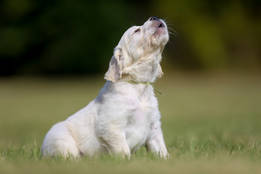-
Definition
-
Definition
-
Did you know?
-
Example Sentences
-
Word History
-
Phrases Containing
-
Related Articles
-
Entries Near
-
- To save this word, you'll need to log in.
Did you know?
What is a noun?
Nouns make up the largest class of words in most languages, including English. A noun is a word that refers to a thing (book), a person (Noah Webster), an animal (cat), a place (Omaha), a quality (softness), an idea (justice), or an action (yodeling). It's usually a single word, but not always: cake, shoes, school bus, and time and a half are all nouns.
There are a number of different categories of nouns.
There are common nouns and proper nouns. A common noun refers to a person, place, or thing but is not the name of a particular person, place, or thing. Examples are animal, sunlight, and happiness. A proper noun is the name of a particular person, place, or thing; it usually begins with a capital letter: Abraham Lincoln, Argentina, and World War I are all proper nouns.
A collective noun is a noun that names a group of people or things, such as flock or squad. It's sometimes unclear whether the verb for a collective noun should be singular or plural. In the United States, such nouns as company, team, herd, public, and class, as well as the names of companies, teams, etc., are treated as singular, but in the United Kingdom they are often treated as plural: (US) "The team has been doing well this season." vs. (British) "The team have been doing well this season."
Gerunds are nouns that are identical to the present participle (-ing form) of a verb, as in "I enjoy swimming more than running."
An attributive noun is a noun that modifies another noun that immediately follows it, such as business in business meeting. These nouns look like adjectives but they're not.
For learners of English, the most important feature of a noun is whether it can be counted. A count noun is a noun that can be used after a or an or after a number (or another word that means "more than one"). Count nouns have both singular and plural forms and can be used with both singular and plural verb forms, as with the word letter in "A letter for you is on the table. Letters for you arrive regularly." Sometimes the plural form of a count noun is the same as its singular form, as in "I saw a deer in my yard yesterday. There are a lot of deer in the woods near my house."
A mass noun (or noncount noun) refers to something that cannot be counted. Mass nouns are normally not used after the words a or an or after a number. They have only one form and are used with singular verb forms, as in "Portuguese is one of the languages they speak," and "The information was unclear."
Some nouns are not count or mass nouns. Nouns which only ever refer to one thing are called singular nouns: "Saturn is the sixth planet from the sun," "We heard a terrible din in the alley." And a plural noun refers to more than one person or thing, or sometimes to something that has two main parts. Plural nouns have only one form and are used with plural verb forms: "Townspeople are invited to a forum on the project," "These scissors are dull."
A particular noun can have any or all of these kinds of uses.
(count) I've read that book several times.
(mass) Time seemed to stop when I saw him for the first time.
(singular) The time is 3:22.
(plural) Fuel costs three times as much as it did five years ago.
Examples of noun in a Sentence
 Maureen MacKey, Fox News, 6 Jan. 2025
Some movies are verbs; this one is self-evidently a noun.
—
Maureen MacKey, Fox News, 6 Jan. 2025
Some movies are verbs; this one is self-evidently a noun.
— David Ehrlich, IndieWire, 27 Jan. 2025
The gameplay is deceptively simple: Review the scene of a crime and fill in blanks in the narrative with nouns and verbs discovered in dialogue or text within the environment.
—
David Ehrlich, IndieWire, 27 Jan. 2025
The gameplay is deceptively simple: Review the scene of a crime and fill in blanks in the narrative with nouns and verbs discovered in dialogue or text within the environment.
— The New York Times, New York Times, 27 Dec. 2024
It can be used as a verb or a noun, alluding to endless scrolling of the internet or social media because of an intense obsession with a particular topic.
—
The New York Times, New York Times, 27 Dec. 2024
It can be used as a verb or a noun, alluding to endless scrolling of the internet or social media because of an intense obsession with a particular topic.
— Michael Gfoeller and David H. Rundell, Newsweek, 15 Jan. 2025
See all Example Sentences for noun
Michael Gfoeller and David H. Rundell, Newsweek, 15 Jan. 2025
See all Example Sentences for noun 

Word History
Phrases Containing noun
Dictionary Entries Near noun
Cite this Entry
“Noun.” Merriam-Webster.com Dictionary, Merriam-Webster, https://www.merriam-webster.com/dictionary/noun. Accessed 22 Feb. 2025.
Kids Definition
noun
nounMore from Merriam-Webster on noun
Thesaurus: All synonyms and antonyms for noun
Nglish: Translation of noun for Spanish Speakers
Britannica.com: Encyclopedia article about noun














Share